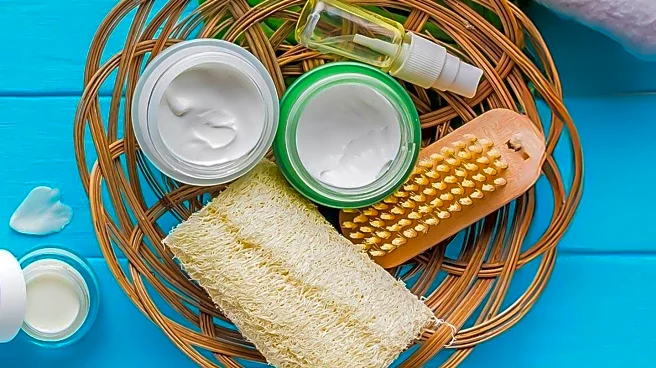What's Happening?
A government-funded study has revealed that individuals with eczema can bathe as frequently as they wish without exacerbating their symptoms. Conducted by the National Institute for Health and Care Research,
the study involved 438 participants, both adults and children, who were divided into two groups: one assigned to daily bathing and the other to weekly bathing. Over a four-week period, participants recorded their eczema symptoms while continuing their regular treatments. The findings, published in The British Journal of Dermatology, showed no significant difference in eczema symptoms between the two groups, suggesting that bathing frequency does not impact skin dryness or worsen the condition.
Why It's Important?
This study is significant as it challenges the conventional advice often given to eczema patients regarding bathing frequency. By demonstrating that frequent bathing does not negatively affect eczema symptoms, the study provides reassurance to patients who may have been anxious about their bathing habits. This newfound flexibility can help reduce stress and improve the overall well-being of those living with eczema. The study also highlights the importance of considering non-pharmacological aspects of eczema care, which are often overlooked due to a lack of funding for research not involving drug interventions.
What's Next?
The study is part of the 'Rapid Eczema Trials' research project, which aims to address various questions about living with eczema. Future research may continue to explore other non-pharmacological aspects of eczema management, potentially leading to more comprehensive care strategies. The findings may also prompt healthcare providers to update their advice to eczema patients, emphasizing the importance of personalized care routines that suit individual needs.
Beyond the Headlines
The study underscores the role of the skin microbiome in eczema management, suggesting that regular bathing may influence the balance of bacteria on the skin. This aspect of eczema care could lead to further research into how bathing and other lifestyle factors affect the skin microbiome and overall skin health.








